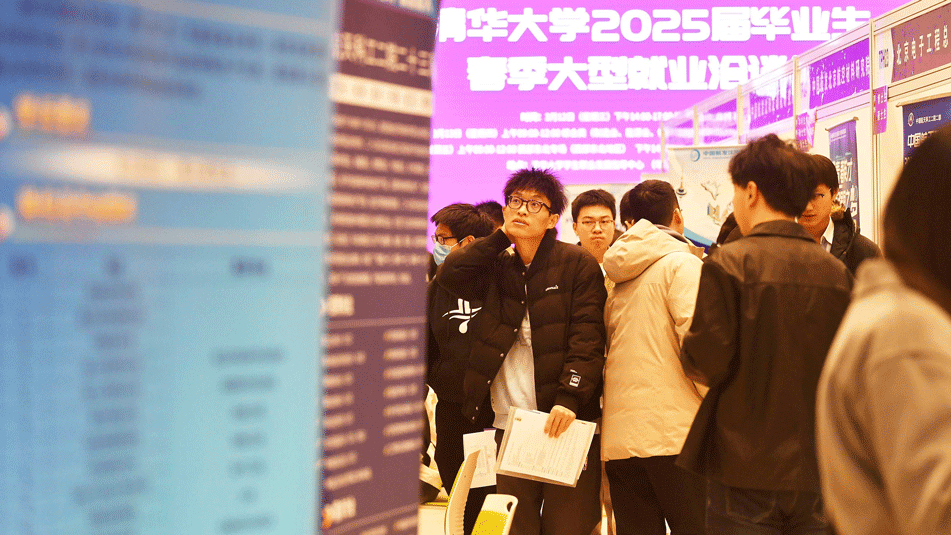
Chinese Academic Suspended for ‘Treating Students Like Slaves’
An associate professor at a Beijing university has been suspended from teaching after being accused of exploiting and verbally abusing her students.
Zheng Feng, who works at the Beijing University of Posts and Telecommunications (BUPT), was found to have breached university regulations and will be permanently banned from academic tutoring at the school, her employer confirmed Wednesday.
The controversy over Zheng first erupted on Tuesday, when an open letter by 15 students at BUPT went viral on Chinese social media. In the 23-page document, the students accused Zheng of forcing them to perform a series of menial tasks — from buying her breakfast to helping her daughter with her homework.
Zheng, who works in the university’s School of Information and Communication Engineering department, was also accused of threatening and insulting students. Several students found Zheng’s behavior so upsetting that they had to seek treatment for anxiety and depression, according to the document.
“Teacher Zheng treats us as if we were slaves,” the students wrote. “More and more things unrelated to scientific research are taking up our time, along with endless insults and abuses.”
Zheng was able to get away with this behavior for so long due to the significant leverage she held over her students, the letter suggests. At the School of Information and Communication Engineering — and many other higher education institutions — the majority of postgraduate students’ assignments are assessed directly by their academic tutors, meaning that they hold significant sway over their students’ final grades.
According to the open letter, Zheng forced students to stay in the laboratory for over 10 hours a day, including during vacations. If they complained, she would threaten to eject them from their projects or hint that she had the power to delay their graduation. She also withheld most of the money students were supposed to receive for interning at a local enterprise.
Some students were even made to help Zheng’s daughter cheat on her school exams and write reports for the child to use in academic competitions, according to the letter.
The case has sparked widespread outrage in China this week, with a related hashtag receiving 88 million views on the microblogging platform Weibo as of Thursday afternoon.
In part, the huge reaction stems from the fact that Zheng’s is not an isolated case. In recent years, a series of academics have been accused of exploiting their students and essentially treating them like personal assistants.
In January, 11 students at Huazhong Agricultural University in the central city of Wuhan accused their tutor of academic fraud and misconduct. A month later, the university confirmed that the accused professor had been sacked, citing his inappropriate treatment of students and poor performance in mentoring and teaching.
Last year, an essay titled “Why She Changed Her Tutor” that shared several examples of unbalanced tutor-student relationships inside Chinese universities triggered widespread discussion on social media — especially the claim that tutors often treated their students like employees.
Cai Junyan, a 24-year-old postgraduate computer science student at a university in the southern Guangdong province, told Sixth Tone that his tutor had asked him to polish his child’s resume, attend parent-teacher meetings with him, and run errands. These extra tasks sometimes took up his entire weekend, though Cai added that his tutor paid him around 300 yuan ($40) for each task.
“Most of the time, being a postgraduate is like working for a boss,” said Cai. “Many teachers just see students as tools for research — as cheap labor.”
A postgraduate business management student surnamed Lin said her tutor had made her answer interview questions and watch online courses on their behalf. She said the tutor generally paid her 300-400 yuan on average per month for this work.
“The work isn’t difficult, so it’s acceptable,” said Lin, who declined to reveal her full name for privacy reasons. “Everyone helps their tutors with their private affairs; it’s not good if you don’t do it.”
Dong Chenyu, a professor at Renmin University of China’s School of Journalism and Communication, told domestic media that action should be taken to regulate tutors’ behavior, such as establishing a feedback system to give students a greater voice inside universities.
“If we only rely on teachers to restrain their own behavior, without institutional supervision, problems will certainly arise,” Dong said. “If a mentor’s behavior makes students feel uncomfortable, they should have a safe channel in which to complain.”
Contributions: Li Dongxu.
(Header image: A view of the entrance to Beijing University of Posts and Telecommunications in Beijing, 2021. IC)














